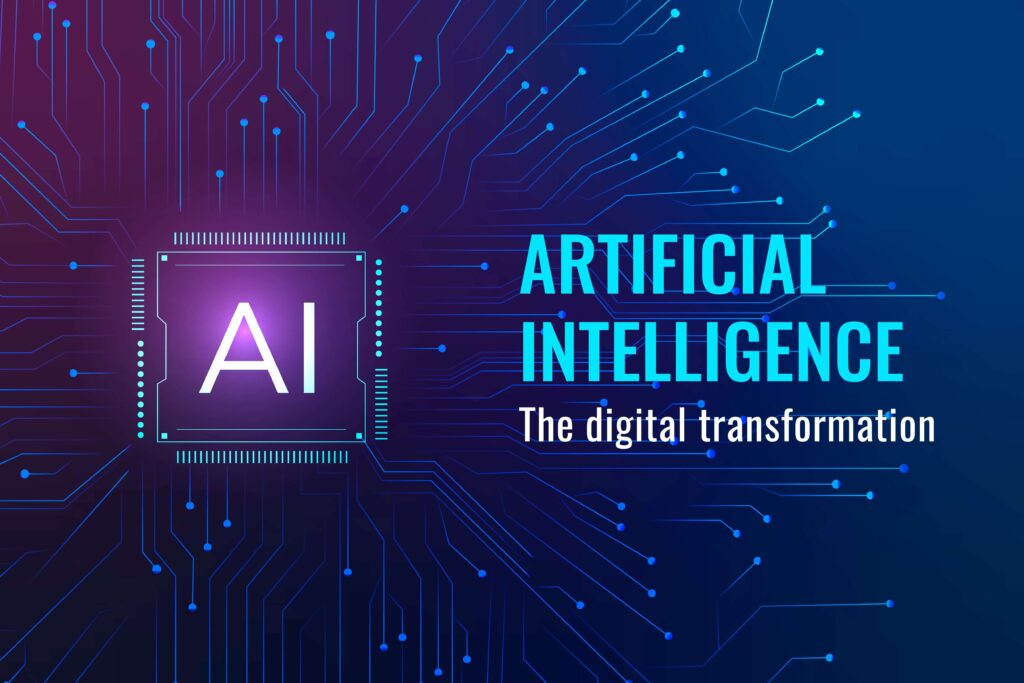Revolutionizing Code: How AI is Shaping the Future of IT

The landscape of information technology is undergoing a seismic shift as artificial intelligence continues to carve out its place within the industry. As organizations strive for operational efficiency and enhanced productivity, AI emerges as a crucial component in the transformation of IT practices. The rise of machine learning, predictive analytics, and automation is not merely a trend but a fundamental evolution in how IT professionals approach their work. How AI is Transforming Information Technology of intelligent systems into IT operations is reshaping everything from network management to data analytics, enabling businesses to harness data-driven insights that inform better decision-making.
As we explore the impact of AI on the IT industry, it becomes evident that this technology is not just a tool but a catalyst for digital innovation. From AI-powered solutions in cybersecurity to smart technology in cloud management, the opportunities for enhancing IT infrastructure are vast. Organizations are beginning to embrace AI adoption, leveraging its capabilities to modernize IT services and improve strategic alignment. As we look toward the future of IT, understanding the implications of AI-driven solutions will be essential for embracing the digital transformation that lies ahead.
AI Impact on IT Operations
AI is transforming IT operations by introducing automation and enhancing efficiency. Traditional IT models often rely on manual processes, which can lead to delays and increased human error. With AI-driven solutions, organizations can streamline operations, allowing for faster response times and reduced downtime. This shift not only improves the overall performance of IT systems but also frees up IT staff to focus on more strategic tasks, fostering an environment of innovation and productivity.
Automation empowered by machine learning and predictive analytics is playing a pivotal role in optimizing IT operations. AI algorithms can analyze vast amounts of data in real time, identifying patterns and anomalies that human analysts might overlook. This capability enables proactive management of IT infrastructure, allowing organizations to foresee potential issues and address them before they escalate. Consequently, businesses experience enhanced operational reliability and cost savings through more informed decision-making processes.
Moreover, the integration of AI in IT supports enhanced cybersecurity measures and smart technology implementation. Intelligent systems can monitor network traffic and user behavior to detect security threats automatically. Cybersecurity teams harness AI tools to enhance threat detection and facilitate quicker incident response. As organizations continue to embrace digital transformation, the collaboration between AI and IT will be crucial in driving future innovations and ensuring robust, efficient IT operations.
Automation and Machine Learning in IT
Automation and machine learning are transforming the IT landscape by streamlining processes and enhancing operational efficiency. The integration of intelligent systems allows organizations to automate routine tasks, reducing the need for manual intervention. This not only speeds up workflows but also minimizes errors, creating a more reliable IT infrastructure. With machine learning algorithms analyzing data in real-time, IT teams can identify patterns and make informed decisions faster than ever before.
The impact of machine learning goes beyond simple task automation. It enables predictive analytics that empower IT operations to anticipate issues before they escalate. For instance, by monitoring system performance and usage trends, AI-driven solutions can predict when hardware might fail or when network capacity will be exceeded. This foresight allows IT departments to take proactive measures, ensuring high availability and optimizing IT resources effectively.
As companies adopt cloud computing, the role of automation and machine learning becomes even more crucial. By leveraging AI in cloud management, organizations can optimize their IT infrastructure for cost and performance. This evolution leads to smarter resource allocation and improved service delivery, supporting the broader trend of digital transformation. Ultimately, these advanced technologies are setting a new standard for IT productivity and innovation, driving the industry forward in ever-expanding ways.
The Future of AI in IT Services
As the digital landscape evolves, the integration of AI in IT services is set to transform how businesses operate. AI-driven solutions are becoming indispensable for IT management, providing tools that enhance operational efficiency and streamline IT processes. Organizations are increasingly leveraging machine learning and automation to boost productivity, enabling IT professionals to focus on strategic tasks rather than routine challenges. This shift not only improves service delivery but also optimizes resource allocation within IT departments.
The role of AI in data analytics will also be pivotal in shaping future IT services. With the ability to analyze vast amounts of data, AI algorithms will provide valuable insights that drive decision-making and business intelligence. Predictive analytics will help organizations anticipate issues and trends, allowing them to proactively address potential disruptions. As companies continue to adopt AI for IT operations, they will harness data-driven insights that empower them to make informed, strategic decisions that align with their business goals.

Looking ahead, the collaboration between AI and IT services will pave the way for further digital transformation. Innovative smart technologies will enhance IT support and infrastructure management, while AI applications will automate routine tasks and improve network management. The future of IT is undoubtedly leaning towards an AI-enhanced environment, where cognitive computing and AI-powered solutions will redefine how businesses approach IT challenges. Embracing these advancements will be crucial for organizations aiming to stay competitive and agile in an ever-evolving marketplace.
